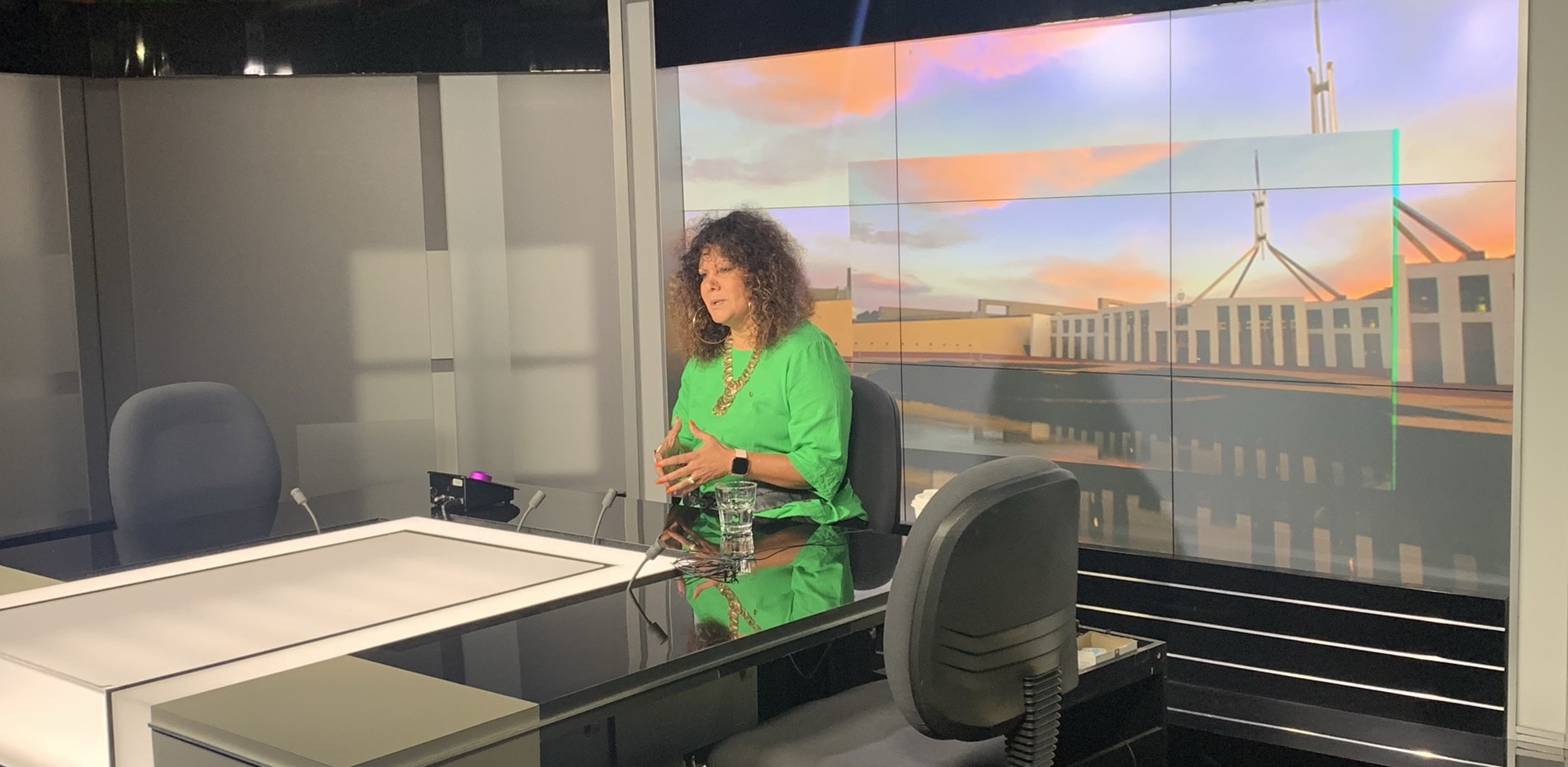GREG JENNET, HOST: Malarndirri McCarthy, this would be situation normal, wouldn't it, when we have major threat happening in a place like Ukraine? I think most people would agree to the two parties of government to get on the same page. We're seeing that.
MALARNDIRRI MCCARTHY, LABOR SENATOR FOR THE NORTHERN TERRITORY: Absolutely. And we heard Anthony Albanese say there that Australia does stand strong and stand together when we do look at these issues of national security and concerns in the international arena. We have stood firm in terms of international interests and we certainly still do today.
JENNET: All right now, there could be a bit of blowback here coming in different ways. Fallout, if you like, let's step through some of those, one we just heard discussed there and earlier by Scott Morrison. It's what always happens with war or conflict. An outflow of refugees. What should Australia be doing for planning there with refugee intake numbers? Should we be increasing the overall number, dedicating a certain number to Ukrainians? We saw it with Afghanistan. I guess we may see it with Ukraine. How do we prepare for that?
MCCARTHY: Well, we should always be preparing for it really and we should have done it much better in terms of Afghanistan. We could see what was going on there well in advance. We certainly need to be mindful of what could happen here with Ukraine. But again, as Senator Penny Wong has also reiterated that we're following that closely. I know she's working very closely with Senator Payne. This is something that Labor does take seriously and does so even when there is no imminent threat of war. Greg, we're still worried about the refugees still in our country who should be out in the community.
JENNET: The fuel price that we pay at the bowser. And I suppose even at the best of times, Malarndirri McCarthy. It's never cheap in Darwin or the remote NT.
MCCARTHY: Yeah, it's pretty high up here in ordinary circumstances, anyway. Certainly if you're travelling at in the long distances,
JENNET: So you'd be shuddering at the prospect of that prices that could go and sit for some time well above two dollars later.
MCCARTHY: Absolutely, absolutely. We've got enough problems with remote and regional areas, our cattle stations, we've got to get that cattle out and on the exports. We've got a range of groups who need to be travelling with their boats, looking after the seas. If we have fuel going up at extraordinary prices, it's going to impact the ordinary Australian and that's something we do have to watch and make sure it doesn't happen.
JENNET: Any role for government policy there. I know there aren't that many tools, governments have on fuel prices- excise and other forms of tax are there, of course, but what do we do? Just ride the market waves and have they come down?
MCCARTHY: Well, certainly from this end, you're going to hear lots of complaints if it goes all the way and we've got the prime minister still in government. They need to be watching this and making sure that ordinary punters don't have those oil prices go up and petrol prices go up because the standard of living today is not where it should be anyway. And we've seen that as a fault of wages not growing as well.
JENNET: You introduced the idea of wage figures coming out today, and they really are, I suppose, rising but sluggish. Can the government or any government lead the way here with at least public sector wage increases if they remain stubbornly low that much they do control?
MCCARTHY: Well, we certainly have to say something change and governments have the levers that they can pull in these both state and territory and federal, obviously, Greg. But what I'd like to say, you know, send a message as I did last time, is that Australians right across the country are suffering in terms of cost of living. Their wages have not gone up compared to the cost of living in this country. And we've seen, obviously the pandemic and other factors that have impacted. But this is the time to create that change and give hope to families right across this country. You just walk down the streets here in Darwin and Alice Springs. People are not in businesses. Those 'escalating wages' are certainly not happening at this part of the country.


